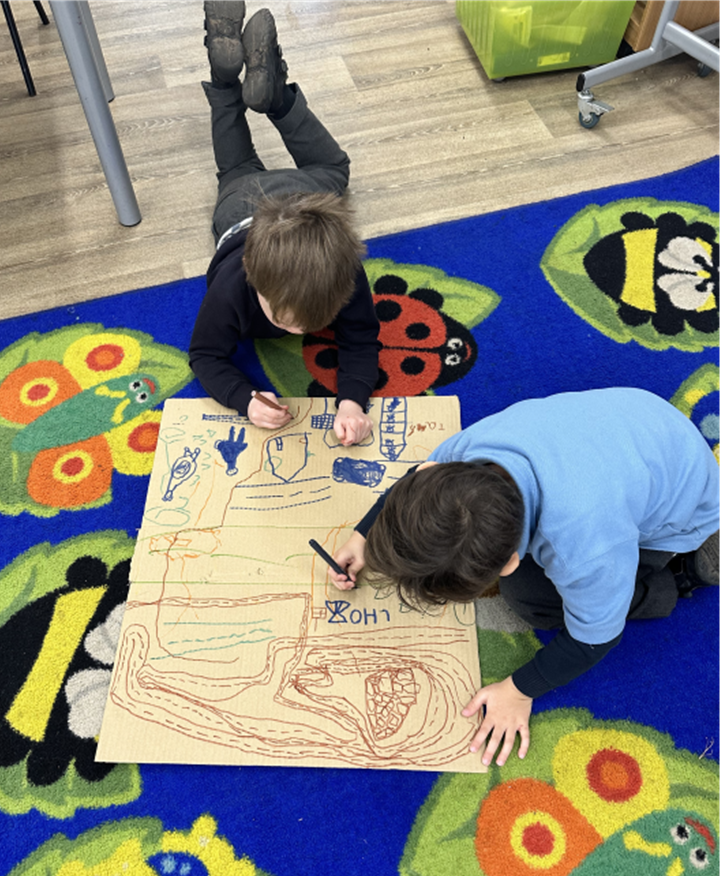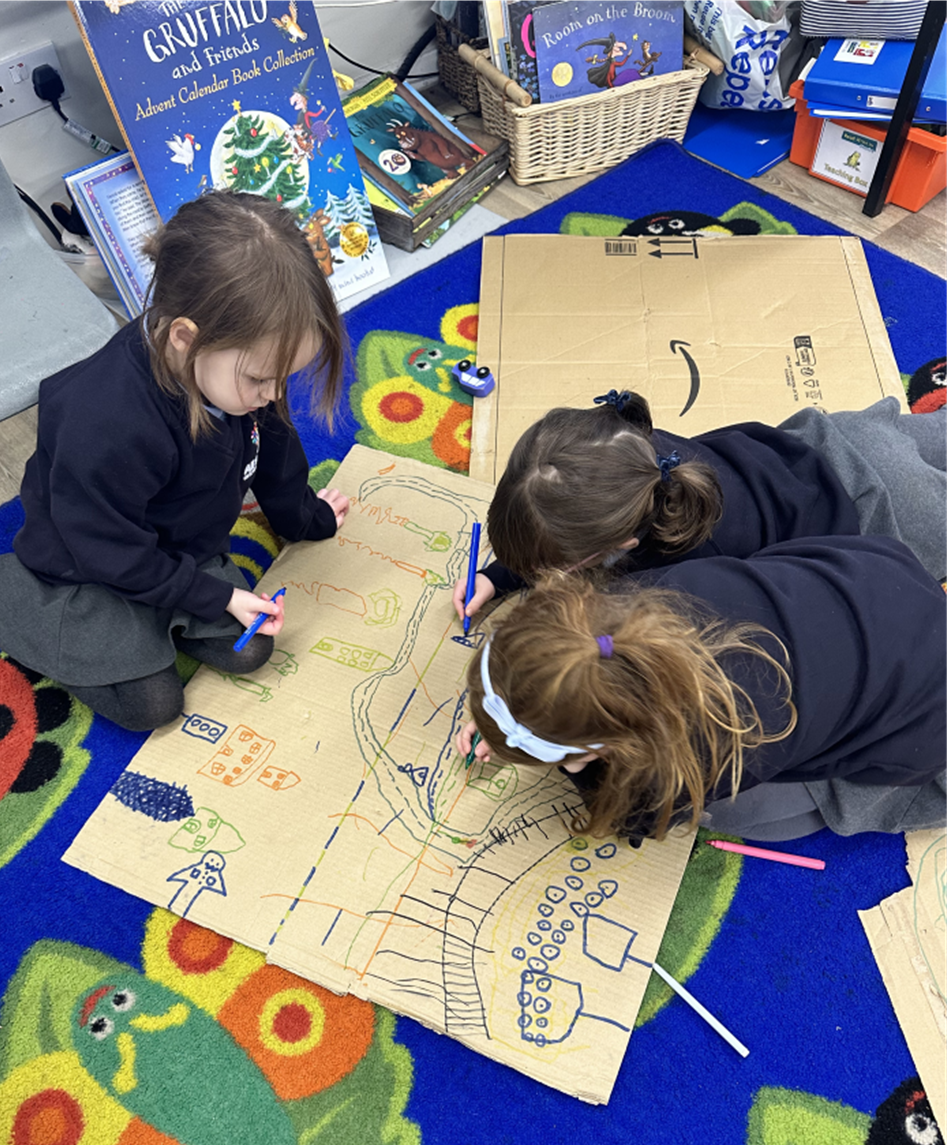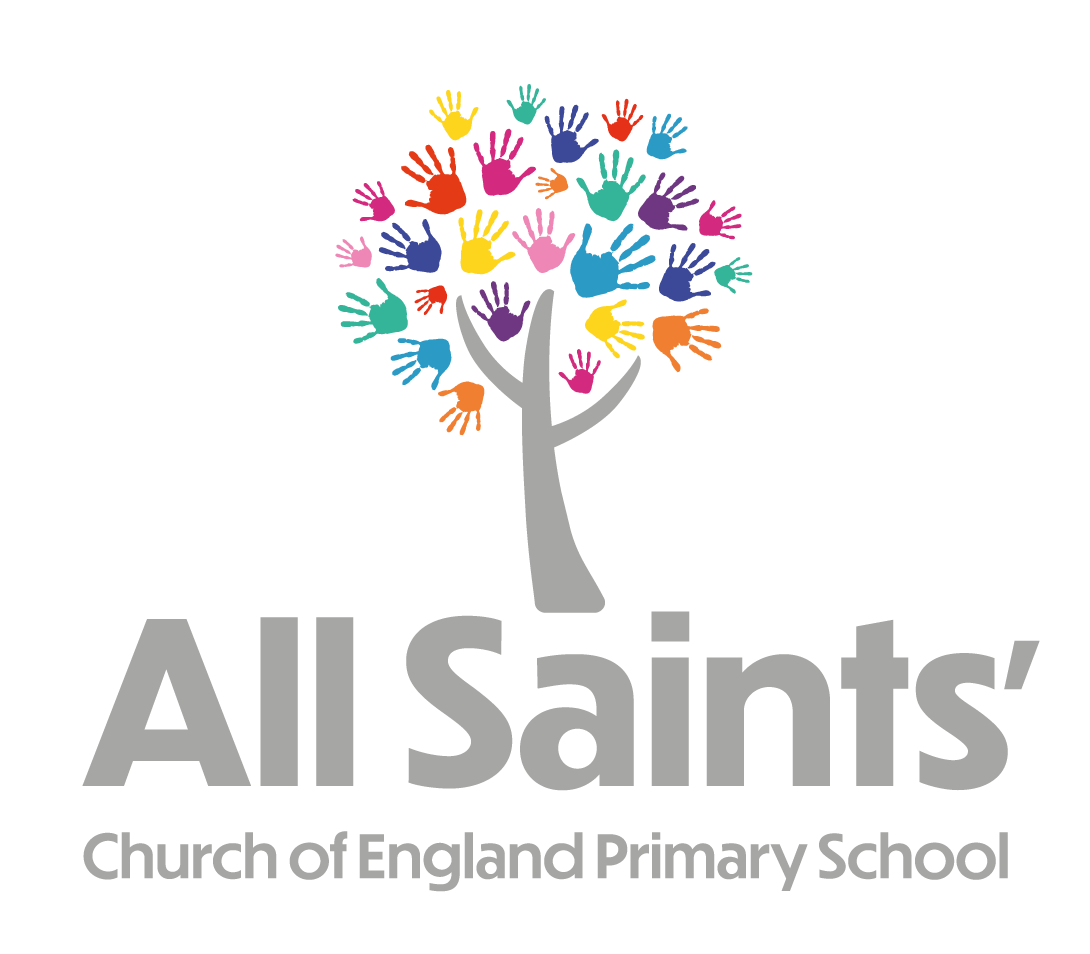- Home
- Curriculum
- Curriculum Subjects
- English
- Writing
- 1. What does writing look like in EYFS at All Saints'?
- 2. Skill-Building
2. Skill-Building
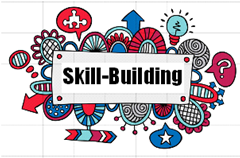
Motor skills
Learning to write is closely linked to a child's physical development. Before children can control the muscles in their hands, they need to develop their gross motor skills (those that need large or whole body movements). For our youngest children, this means having the freedom and space to kick, roll, swing and crawl. And for our older children, this also means the chance to run, climb, balance, throw, push, pull and swing their arms.
Gross motor skills activity ideas:
- use ribbon sticks to make large circular and zig zag movements in the air
- swing and hang from climbing frames
- lift and move heavy objects
- paint with large rollers and brushes on a vertical surface (like a wall or easel)
- marching to music
- anything that encourages children to stretch their arms above their heads
Fine motor skills
As soon as a child starts to show that they're beginning to control their movements, you can encourage fine motor skills (precise, small muscle movements). Hand eye coordination is a key part of this, so we provide our children with a range of interesting objects to grasp, squeeze, pat and poke. By handling objects, children are strengthening their hands and fingers, so that they can grip a pencil.
Fine motor skills and hand strength activity ideas:
- use small droppers to drop water on to a target
- use a spray bottle to fire water on to a target
- screw up small pieces of paper
- open and close zip loc bags using index finger and thumb
- squeeze sponges to move water from one container to another
- pop bubble wrap
- push pipe cleaners through the holes of a colander
- prod, poke, squeeze and roll play dough or push it through a garlic press
- pick up small objects and put them in compartments or a cupcake tray
- twist and open containers with lids.
Squiggle Whilst You Wiggle
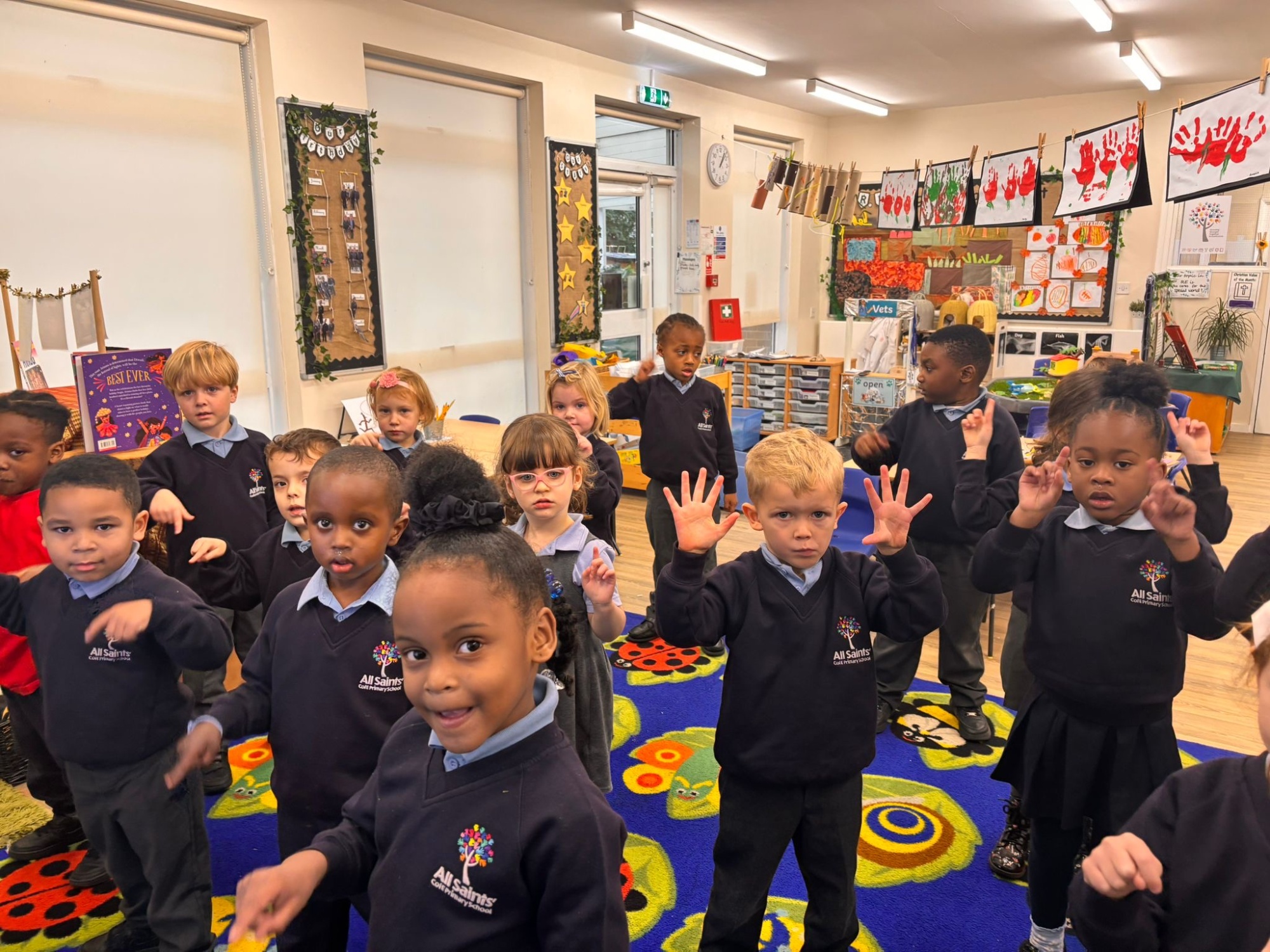
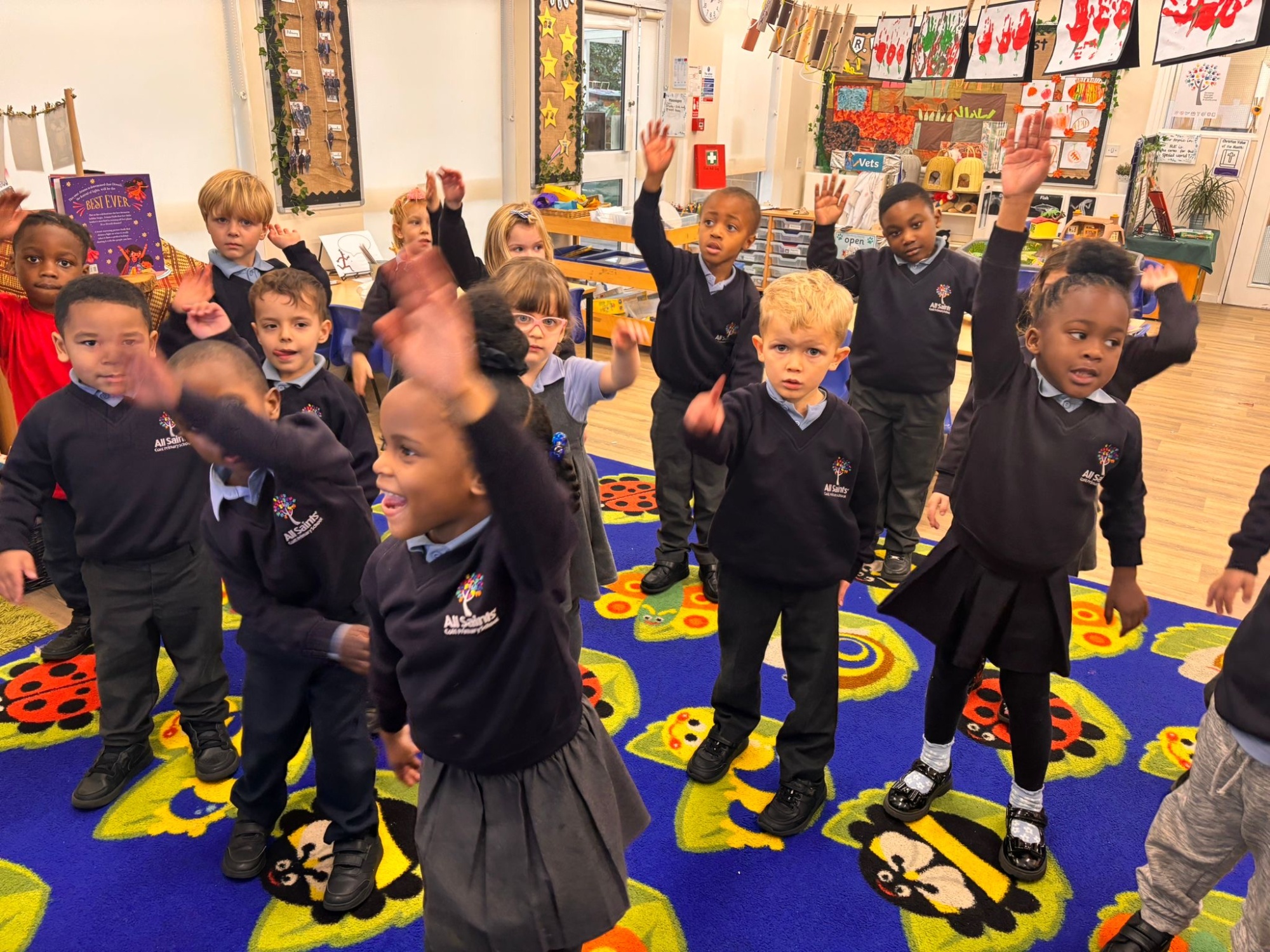
Squiggle Whilst You Wiggle is an early writing program that we do Nursery. Squiggle Whilst You Wiggle incorporates dance, music and large movements to help children develop the fine muscle control they need for writing. They will learn a new gross motor movement to a piece of music while holding 'flappers' (bits of fabric) while dancing along to the music. The children then transfer these movements to floor level and swap their flappers for writing tools (crayons/pens etc) to make marks, this could be in foam, on paper, in sand etc. They will then use this action to think of letters they can form that use this shape. These sessions are great fun but most importantly help your child to be confident mark makers.
Dough Disco
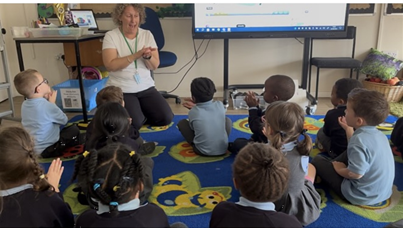
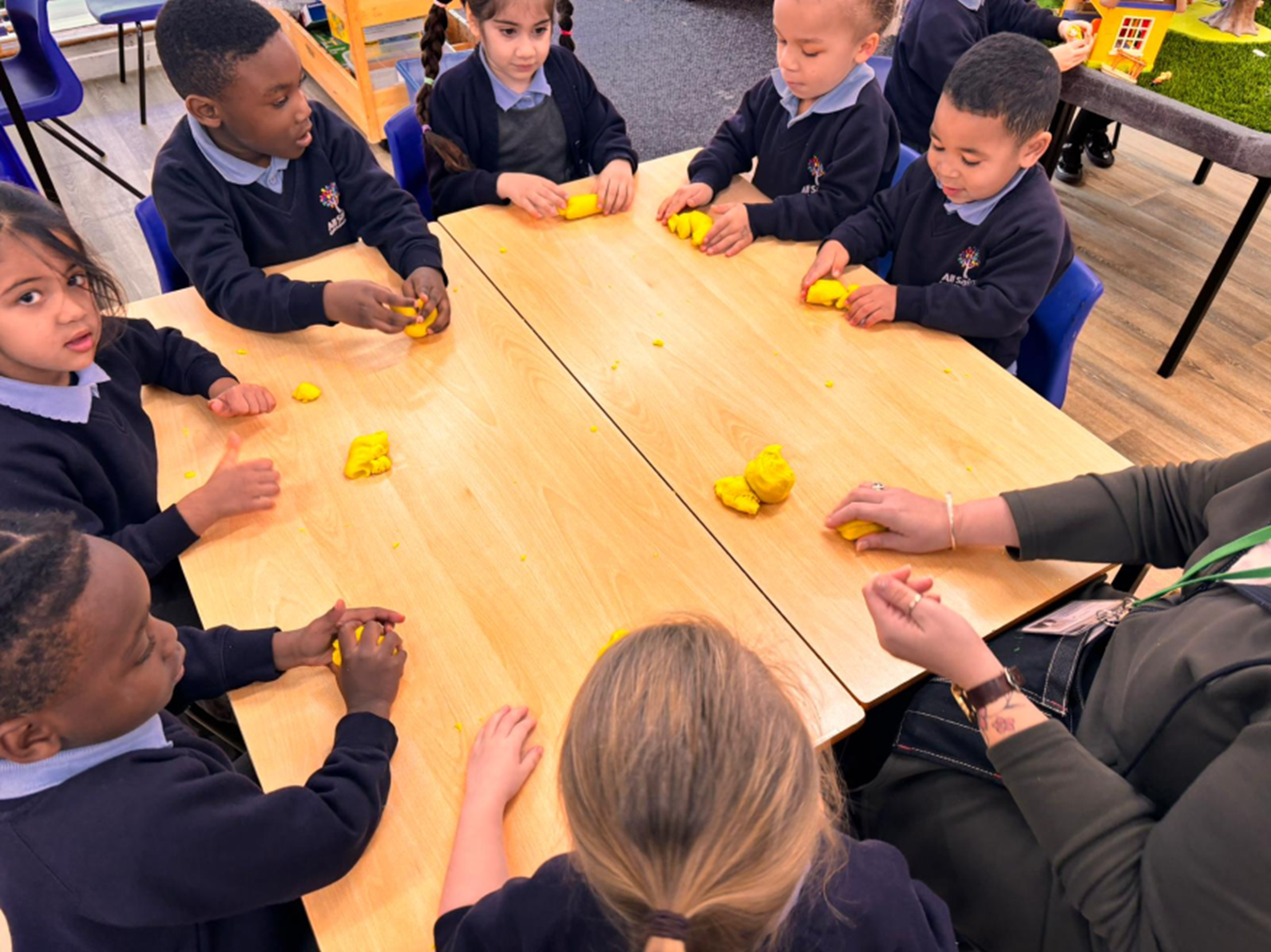
We use Dough Disco in Early Years which involves moulding play dough in time to music and performing different actions such as rolling it into a ball, flattening it, putting each individual finger into the dough, rolling it into a sausage and squeezing it.
Children need to have strong muscles in their hands to enable them to write effectively. This is exercise for the fingers to improve fine motor control and gross motor skills. Doing these simple, fun exercises will help prepare children for writing. Dough Disco can also be used to develop finger dexterity for people with health conditions or impairments.
Reception- Fine motor activity-numeral format in coloured rice.
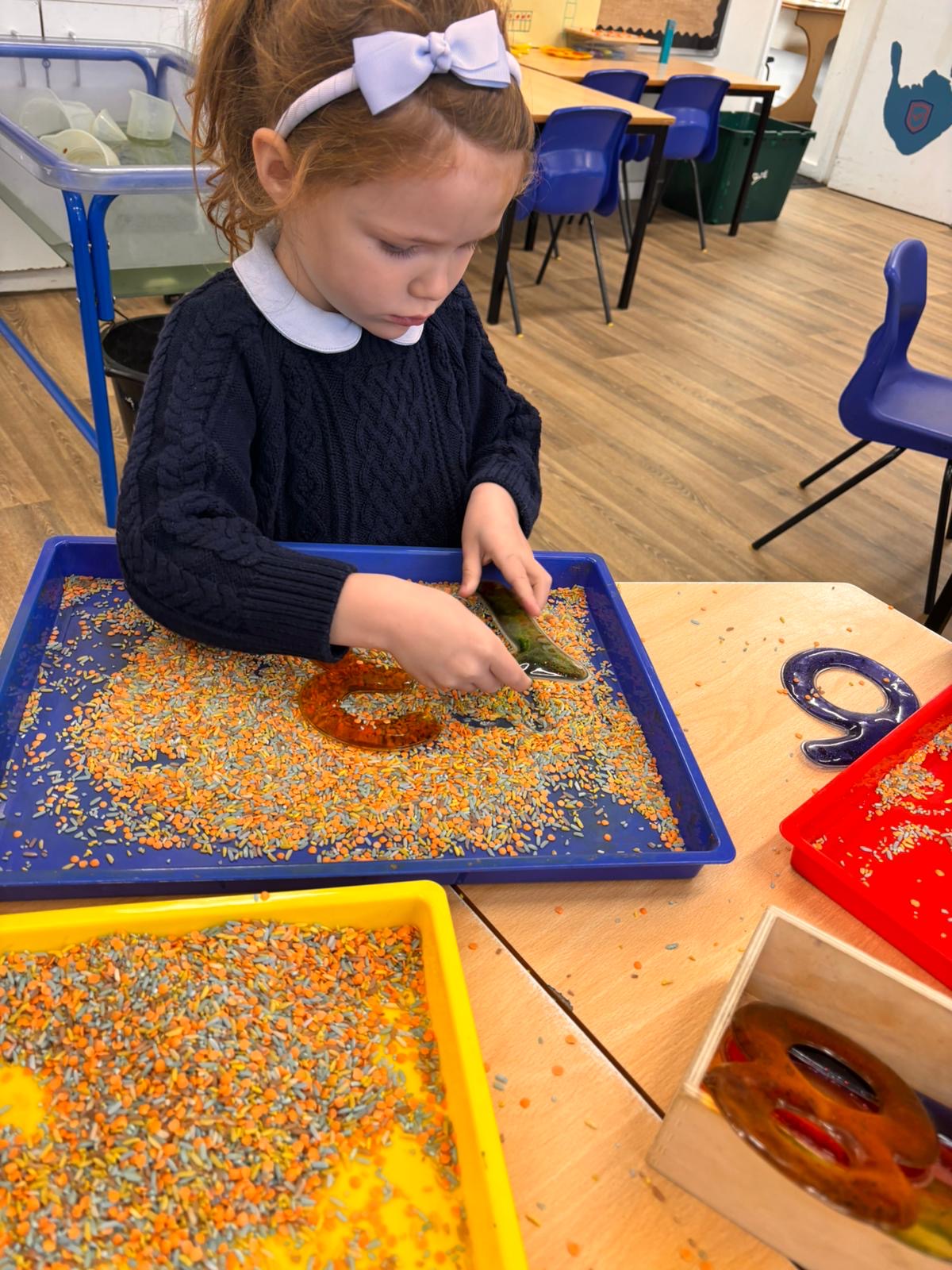
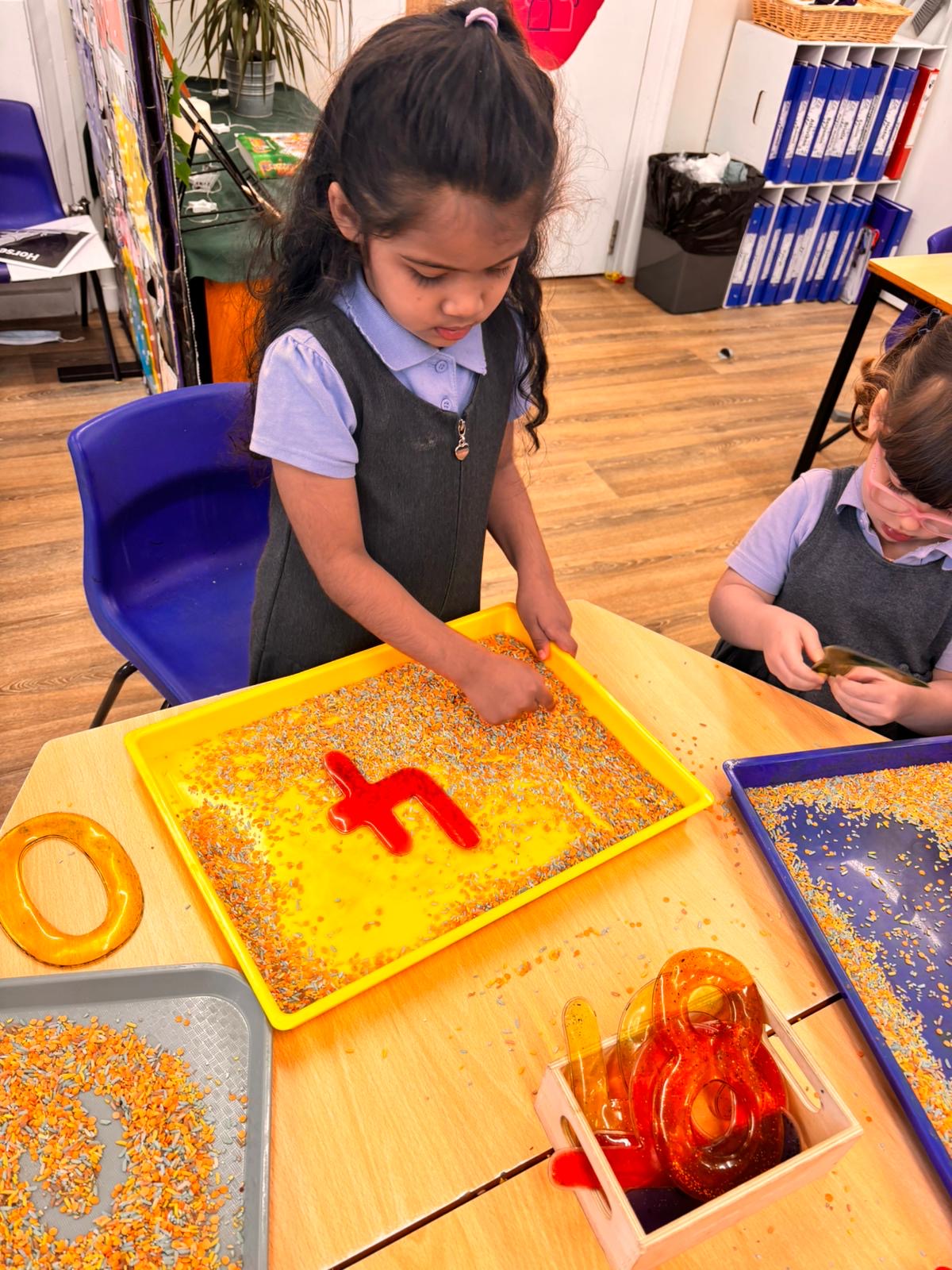
Reception- Practising using the correct grip and letter formations
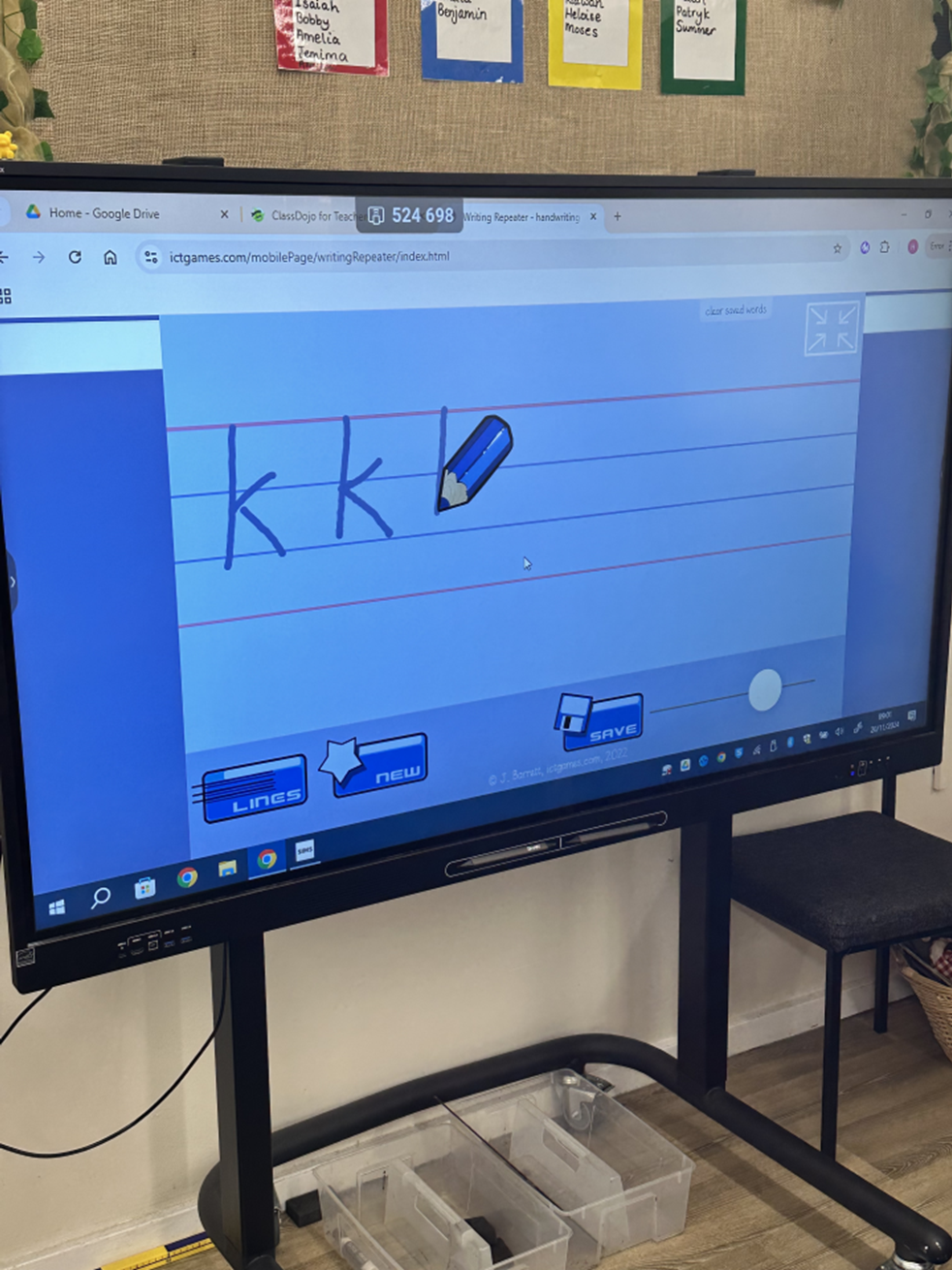
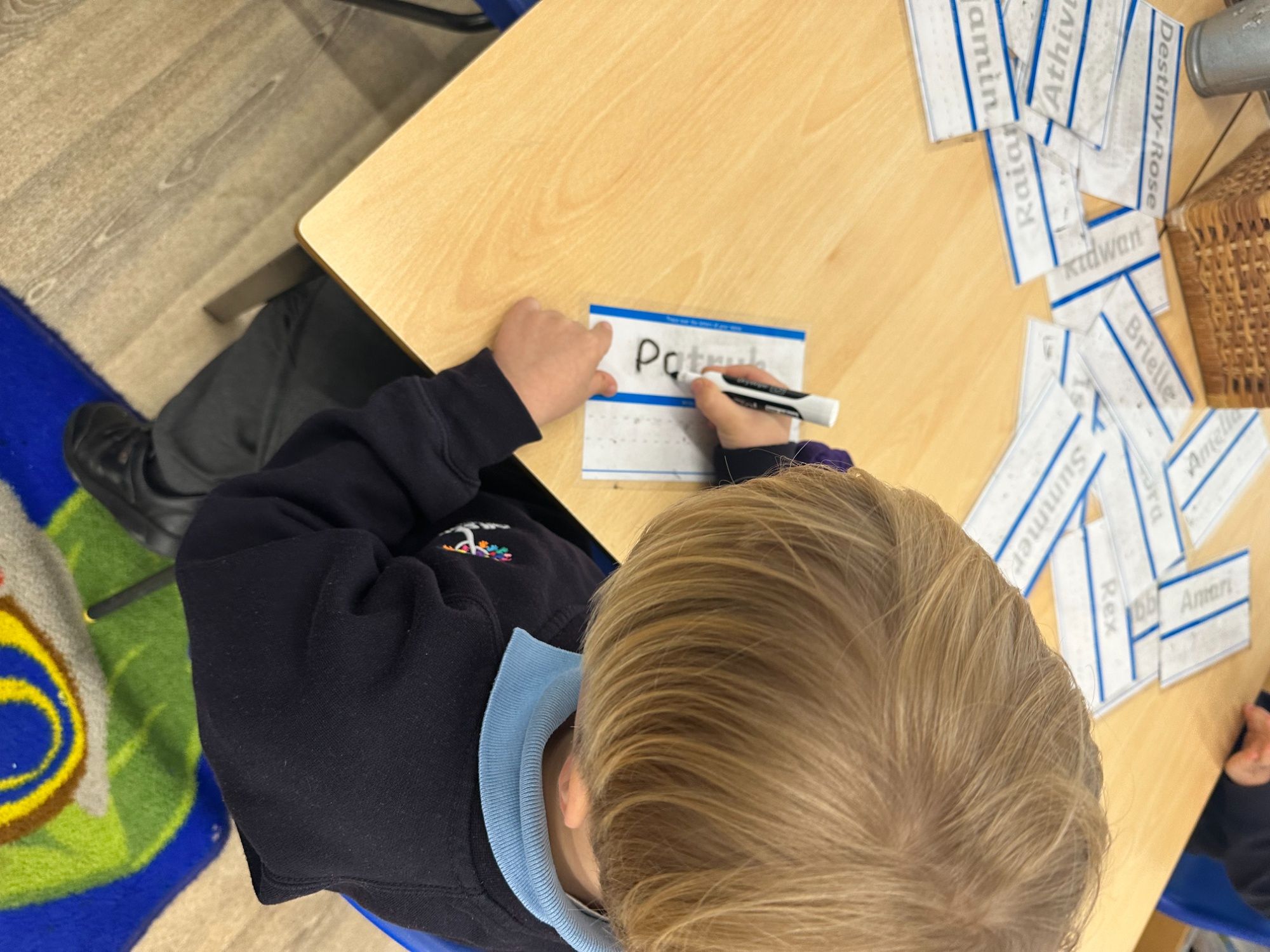
Reception- Mark making without confinements
